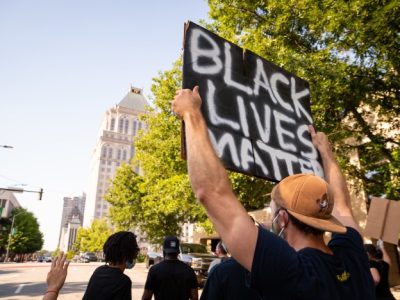On Monday, Winston-Salem’s Small Batch Beer Co. announced on its Facebook page a decision that before recently would have been absolutely unheard of in the American bar business.
“Starting today we will no longer be selling InBev products,” the short announcement began, and anyone who knows anything about the bar business stopped cold right there.
InBev is actually AB InBev, a giant Belgian beer company, the largest in the world. Labatt’s, Heineken, Stella Artois, Bass, Corona, Carlsberg and Beck’s are all InBev beers — the company makes a practice of buying the most popular beer brands in Europe, Asia and the Americas. That’s why, in 2008, it merged with Anheuser-Busch, which at the time was, based on revenue, the world’s largest beer company. The St. Louis powerhouse brewed American giants Michelob, Busch, Rolling Rock, the entire Budweiser family of beers and just about every other mass-produced American label that doesn’t have the word “Miller” in it.
There was a time when stocking a bar without any Anheuser-Busch products was unthinkable. It still may be.
In 2008, mainstream brands like Budweiser ceded just 4 percent of the overall US beer market to craft beers of the type made and sold by places like Small Batch. The 2013 figures show craft beer almost doubling up to 7.8 percent of US beer sales.
And while that number should jump again for 2014 — for example, three new craft breweries opened in the Triad in 2014 — Gibb’s and Pig Pounder in Greensboro, and the Hoots Roller Bar, which began brewing its own beer that year. It shows there is still plenty of room for growth in the sector.
Fear is what prompted AB InBev to throw shade at the craft industry in a ballyhooed Super Bowl commercial declaring Budweiser a “macro” beer. “Let them sip their pumpkin peach ale,” the screen text read. As if anyone would drink that.
But still… it’s difficult to penetrate a market dominated by InBev, which itself fuels about 25 percent of global beer consumption. Small Batch’s decision may be a dicey one, particularly in North Carolina where affection for cheap, yellow beer runs deep.
The risk they run is that a customer will go get a Bud Light somewhere else before delving into the world of craft beer at Small Batch. The expected reward is that, upon tasting that first craft beer, the customer will become a devotee for life.
That’s the long game, eating into InBev’s market share and not giving them opportunity to gain it back. And more and more brewhouses will likely be making similar choices this year.
But InBev plays the long game, too. They bought two craft breweries last year — Oregon’s 10 Barrel Brewing and Blue Point in New York — and a Seattle brewer, Elysian Brewing, last month.
Join the First Amendment Society, a membership that goes directly to funding TCB‘s newsroom.
We believe that reporting can save the world.
The TCB First Amendment Society recognizes the vital role of a free, unfettered press with a bundling of local experiences designed to build community, and unique engagements with our newsroom that will help you understand, and shape, local journalism’s critical role in uplifting the people in our cities.
All revenue goes directly into the newsroom as reporters’ salaries and freelance commissions.





Leave a Reply